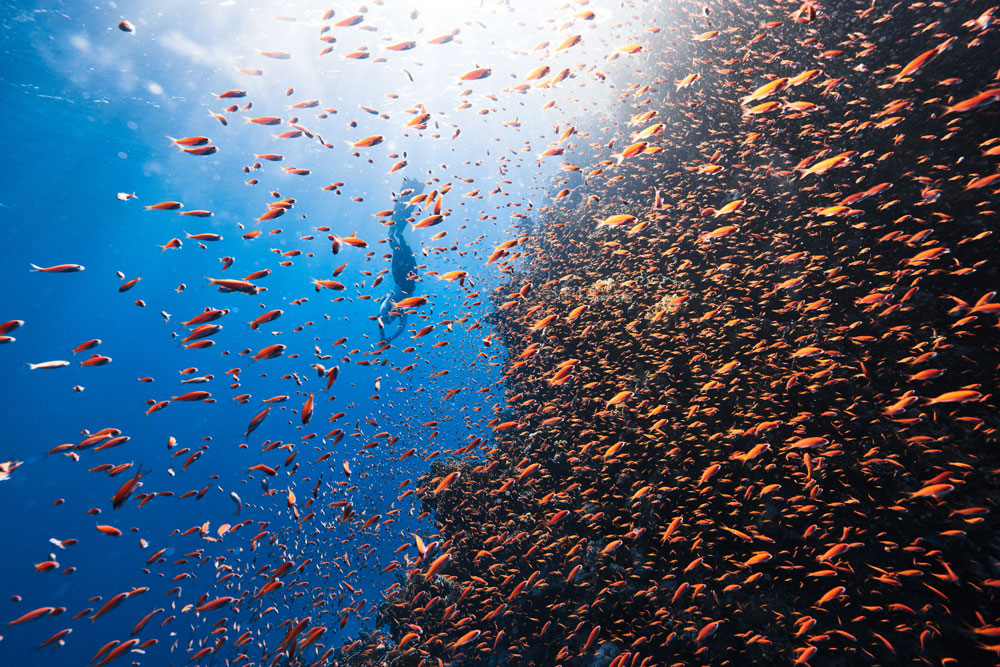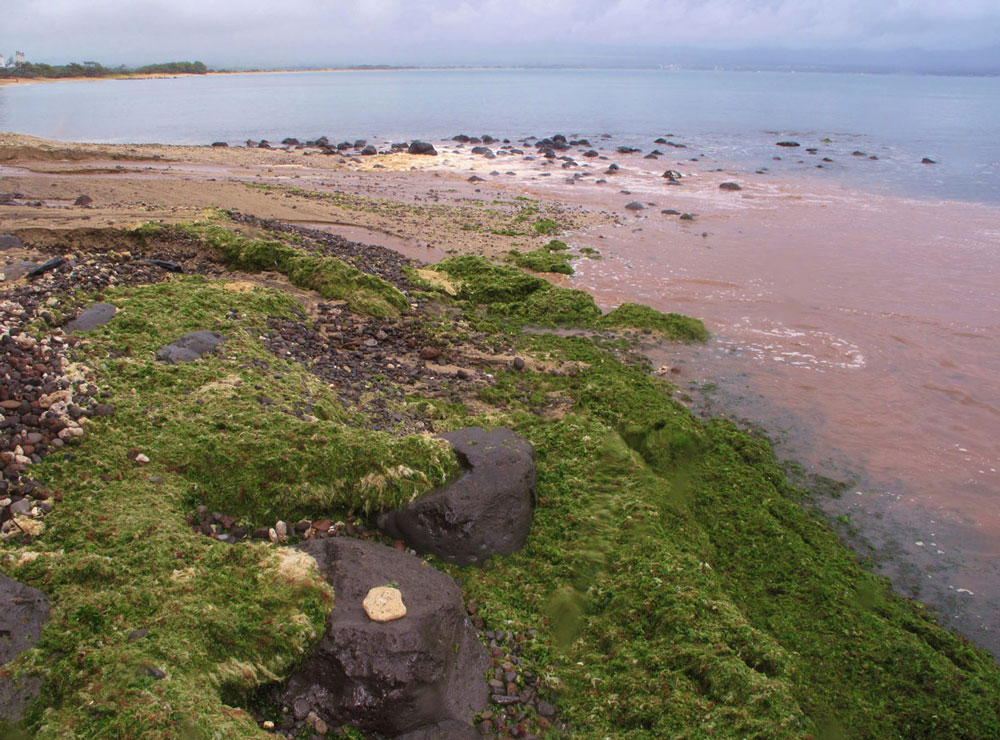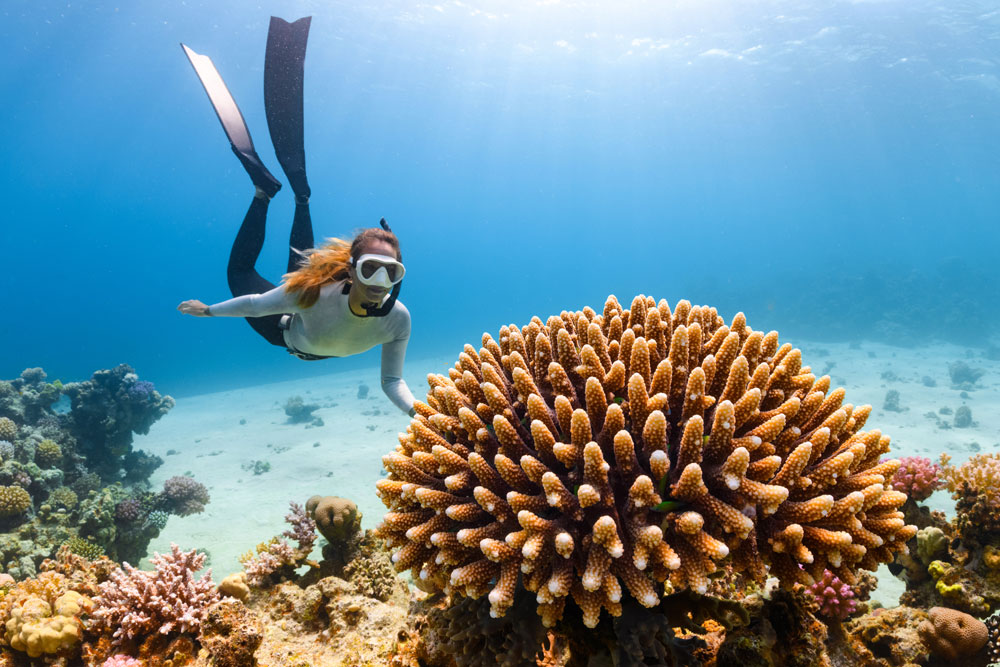Coral reefs, the vibrant and diverse underwater ecosystems, are not only breathtakingly beautiful but also vital for the health of our oceans. These magnificent structures teem with life, providing habitats for countless marine species. However, their survival is intrinsically tied to one crucial factor: water quality.
Let’s explore the dynamic connection between water quality and coral reefs, and why preserving pristine conditions is essential for their well-being.
Oxygen Levels: Breathing Life into Coral Reefs
Just like terrestrial organisms, corals need oxygen to survive. Adequate oxygen levels in the surrounding water are vital for coral respiration and the metabolic activities of other reef dwellers. Pollution and excessive nutrient enrichment can deplete oxygen levels, leading to hypoxia, a condition that stresses and can even kill corals. Maintaining good water quality ensures the oxygen-rich environment that corals depend on.

Temperature Regulation: A Balancing Act
Coral reefs thrive within specific temperature ranges, but climate change poses a significant threat. Poor water quality exacerbates this issue by contributing to elevated water temperatures. When exposed to stressors like warm water, corals undergo bleaching—a process where they expel their symbiotic algae, leaving them vulnerable. This not only weakens their resilience but also affects the entire reef ecosystem. Preserving water quality aids in mitigating temperature fluctuations and protecting corals from the detrimental effects of bleaching.
Nutrient Balance: Nurturing the Reef’s Delicate Harmony
Coral reefs exist in a delicate balance of nutrients. However, human activities can disrupt this harmony. Excessive nutrient inputs from sources like agricultural runoff and sewage discharge cause eutrophication—a condition where nutrient levels become unnaturally high. This leads to rapid algal growth, smothering corals and hindering their access to sunlight and nutrients. Furthermore, algal overgrowth impedes oxygen exchange, jeopardizing the reef’s health. Maintaining water quality helps preserve the nutrient balance vital to coral reef ecosystems.
Sedimentation: The Silent Suffocation
Sedimentation poses another threat to coral reefs. Poor water quality contributes to increased sediment loads, resulting in the deposition of sediments on reefs. This sedimentation blocks sunlight, suffocates corals, and disrupts their feeding, growth, and reproductive processes. It also hampers the settlement of coral larvae, making it challenging for new corals to establish and thrive. By addressing water quality issues, we can prevent sedimentation and safeguard the future of coral reefs.

Pollution and Toxins: Tainted Waters, Dimmed Reefs
Chemical pollutants, such as heavy metals, pesticides, and oil spills, pose a severe risk to coral reefs. These contaminants enter the water and wreak havoc on corals, inhibiting their growth, reproduction, and overall health. Moreover, they disturb the delicate balance of the reef ecosystem, impacting the diverse array of organisms that rely on the reef for survival. Preserving water quality is essential for reducing pollution and protecting corals from the toxic threats they face.
Steps Toward Clean Water
Water quality is an indispensable factor in the preservation and prosperity of coral reefs. By understanding the intricate connection between water quality and reef health, we can take proactive steps to ensure their survival. Mitigating pollution, controlling nutrient runoff, and addressing climate change are all critical actions that can help protect these remarkable ecosystems. Let us work together to preserve the vibrant beauty and ecological significance of coral reefs for generations to come.

